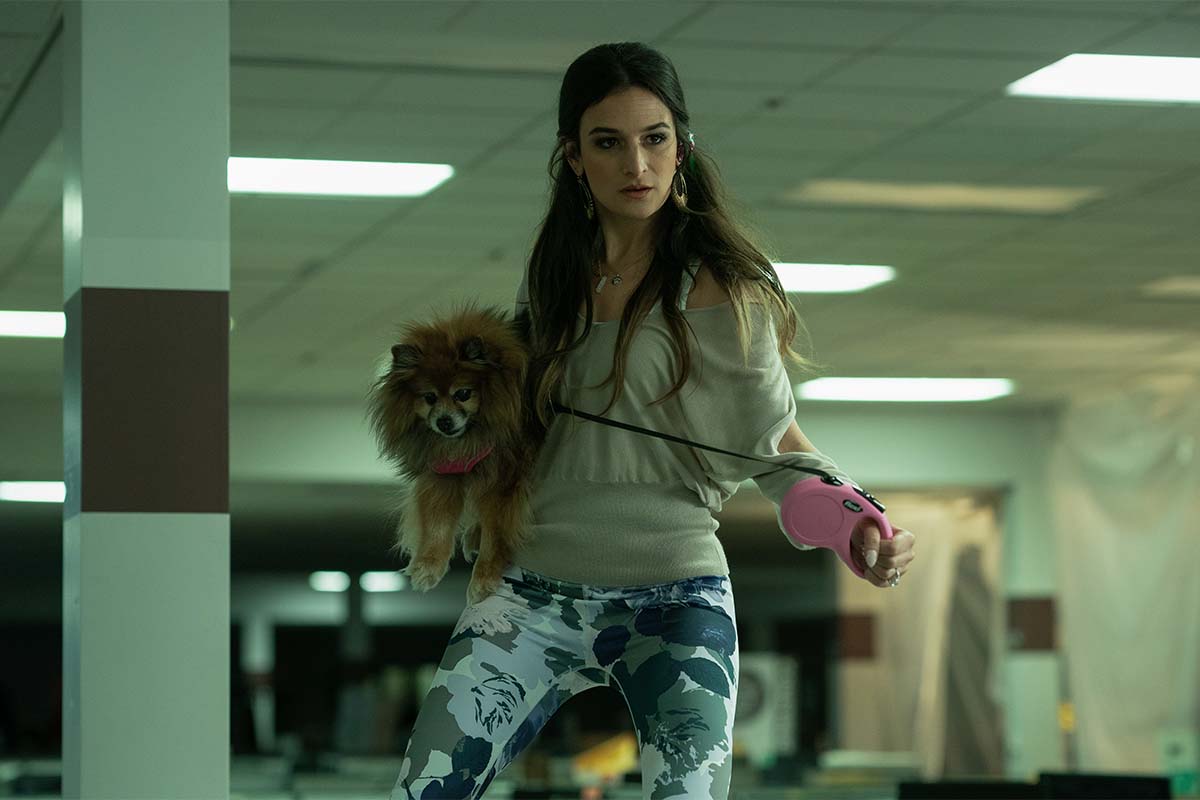Light spoilers ahead for “Everything Everywhere All at Once.”
“Everything Everywhere All at Once” is a film as jam-packed as its title suggests. The sci-fi flick starring Michelle Yeoh tackles immigration, discrimination against Asian Americans and homophobia in manners both hilarious and heartbreaking. Critics and moviegoers have praised the film for offering audiences a journey into the multiverse without relying on tired existing intellectual property (like Marvel movies), and Yeoh’s performance in particular is already making awards season prediction lists. So why is the internet up in arms over a perceived antisemitic joke at the expense of Jewish actress Jenny Slate?
Yeoh stars as Evelyn, a middle-aged Chinese American immigrant who has hit a breaking point. She feels herself growing distant from her amiable but hapless husband Waymond (Ke Huy Quan) as they struggle to maintain the laundromat they opened after leaving China. Her daughter Joy (Stephanie Hsu of “The Marvelous Mrs. Maisel”) wants to come out to Evelyn’s visiting father (James Hong), but Evelyn doesn’t want to handle the inevitable tension between Joy and her father while staring down a massive IRS audit of the laundromat’s finances. At their meeting with grumpy IRS inspector Deirdre (Jamie Lee Curtis), an alternate universe version of Waymond reveals that in another life, Evelyn was the only person intelligent enough to develop technology that allows people to “jump” into the bodies and minds of their alternate universe selves. Burdened with the ability to see what her life could have been like if she had made any number of different choices, Evelyn must travel through the multiverse to save the world from an all-powerful malevolent force.
So where does Slate fit into this framework? Before the adventure really begins, Slate visits the laundromat, where Evelyn comments that she has a large nose and instructs Waymond to give the large-nosed woman her clean laundry. Slate, garbed in athleisure with impeccably ironed hair, is too preoccupied with her tiny dog and a bitter phone call to notice that she is the subject of gossip. The “big nose” comment is jarring, but fleeting; Slate doesn’t reappear until an alternative universe version of her shows up to fight Evelyn in the IRS building. While I bristled at the repeated “big nose” joke coming at the expense of a character coded as a Jewish American Princess, I may not have remembered the jab if not for widespread backlash online.
The characterization and comment drew criticism on social media and elsewhere, with Jewish writer Danielle Solzman making the slight the chief focus of her movie review. The film is “an otherwise hysterical sci-fi action adventure, but reduces a character to an antisemitic stereotype,” Solzman wrote on her website at the end of March. Solzman’s concern is not just that Evelyn refers to Slate’s character as “Big Nose,” but that this is how the character is billed, as many users on the film logging social media site Letterboxd also noted. It’s an off-putting way to bill the character, and their brief interaction in the laundromat does rely on an antisemitic stereotype that Evelyn employs with no regard to the other woman’s feelings.
But this is, in fact, the point of the scene.
Throughout the film, Evelyn shows the audience that for all her redeeming qualities, she is quite a judgmental person. She makes vast assumptions about Deirdre’s home life based on her appearance and clothes. She regularly fat shames Joy and insists that her daughter stay in the closet for the good of the family. She belittles and second-guesses Waymond at almost every turn and gets caught in a variety of snares of her own invention because of her jealousy and tendency to jump to conclusions. None of these choices are meant to be endorsements on behalf of writing and directing duo Daniel Kwan and Daniel Scheinert (better known as “the Daniels”); her character development is instead a fundamental component not only of her story, but of all stories.
Walking out of the theater, I never assumed that the Daniels were suggesting that the way Evelyn talked to Joy about her weight was healthy or acceptable, and I can easily apply this thought to the “Big Nose” debate. Yes, it’s an antisemitic moment, but it’s one that later serves to remind Evelyn to regard others with more care and grace. In the context of the film, which is critical of early Evelyn’s worldview, the uncomfortable moment makes perfect sense.
The Daniels have changed the billing of Slate’s character from “Big Nose” to “Debbie the Dog Mom” for the streaming release of the film in response to the criticism, and expressed regret that the character’s name created an awkward and unfortunate controversy. They also revealed in an interview with DigitalSpy that a scene that fleshed out Slate’s character beyond her nose and clothes was cut from the final version of the film. The change feels like a smart and fair compromise; personally, the billing struck me as worse than the offhand comment from Evelyn in the film.
To me, the debacle serves as a potent reminder to move away from the assumption that artistic depiction is equivalent to moral or cultural endorsement on behalf of the artist. This view not only harms artists, but does a major disservice to audiences everywhere. I believe there’s a lesson to be drawn from this that has broader applications to watching films, and consuming art, in general. We should approach works of pop culture not with the acerbic pre-judgment that Evelyn has in the beginning of “Everything Everywhere All at Once,” but with the open mind that she carries at the end of the film.



